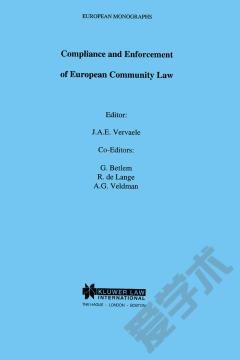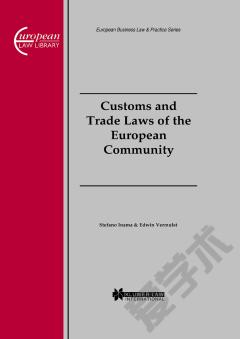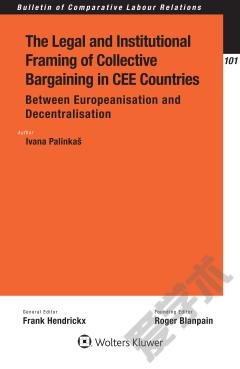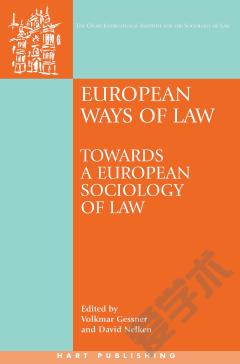Regulating Social Europe —— Reality and Myth of Collective Bargaining in the EC Legal Order
----- 规范欧洲社会
Introduction - subject and scenario - defining the framework of the study. Part 1 A "community based on the rule of law": from the White Paper on completing the internal market to today - apogee and decline of the community harmonisation model the role of law in the European integration process labour law and the institutional context - a methodological note. Part 2 Social complexity and regulatory dilemmas in the community system: regulatory deficit and alternatives to legislation - the post-positivist labour law tradition - at the root of the regulatory illusion - loss of the epistemic authority of law, an evergreen paradigm - legal pluralism the peculiar nature of the community legal order - legal sovereignty lost "twice over" - some symptoms of the community harmonisation model's regulatory deficit, "first generation" alternatives - mutual recognition, regulatory competition, standardisation, "second generation" alternatives - the agency model, and in labour law - the "quomodo" of social Europe. Part 3 European collective bargaining - between old systems and new realities: in the beginning there were collective autonomy, pluralism and collective laissez-faire and on the seventh day the Maastricht Summit created European Collective Bargaining the "functional singularity" of European Collective Bargaining and interpretative tools - an interim summing up. Part 4 European Collective Bargaining and hermeneutic categories - the need for a new theoretical framework: private law classification of collective agreements and trade union "agency" in the community system collective autonomy and European Collective Bargaining - the many reasons for an incompatibility - a collective autonomy without employees? pluralism and collective autonomy in the community system - social pluralism and rationalisation in terms of collective labour law. Part 5 An unhappy alternative: "inconsequential" collective bargaining - the normative function of collective bargaining and the (non-existence of the) principle of freedom of association in the community legal order, a European collective laissez-faire?, state law and the "law" of the industrial relations system, freedom of association and the legal status of collective agreements "tied" collective bargaining - pre-set limits, and subsequent assessments, legality, representative status, small and medium-sized enterprises, general approval lessons from experience - Directive 96/34/EC on parental leave, Directive 97/81/EC on part-time work and Directive 99/70/EC on fixed-term work. Part 6 Collective agreements as a resource of the community legal order: "public law" collective agreements and neo-corporatist models in the community system - a still unlikely prospect collective bargaining as a resource of the community legal order - European collective bargaining as a regulatory resource, European collective bargaining as a legitimacy resource regulatory techniques and a European social constitution.
{{comment.content}}








 京公网安备 11010802027623号
京公网安备 11010802027623号